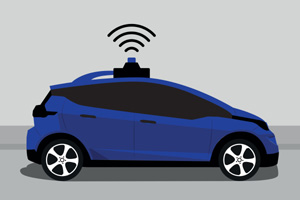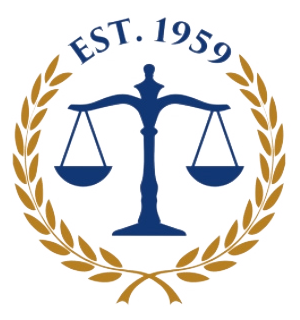
The rise of self-driving cars promises convenience and innovation, but when accidents happen, the aftermath can be anything but simple. Understanding how to file a claim for injuries caused by an autonomous vehicle means untangling a web of potential liability, from manufacturers and software developers to human operators. Unlike traditional car accidents, these cases involve complex technology and evolving laws, making determining who should be held responsible more complex.
Byrd Davis Alden & Henrichson, LLP has decades of experience handling complex personal injury cases, including those involving cutting-edge technology. Our deep understanding of product liability and motor vehicle accident laws allows us to navigate the legal landscape effectively, helping clients pursue the compensation they deserve.
What To Know About Filing Claims for Injuries Caused by Autonomous Vehicles
Self-driving cars are becoming more common on the roads, but it can be challenging to know how to recover compensation when accidents happen.
Who Can Be Held Liable for an Autonomous Vehicle Accident?
Liability in autonomous vehicle accidents is complex because responsibility can fall on different parties. Identifying who is at fault requires an investigation into how the accident occurred.
- Vehicle manufacturer: If the self-driving car had a design flaw, faulty hardware, or a manufacturing defect, the company that produced the vehicle could be held accountable.
- Software developers: The companies that design and maintain the self-driving software may be liable if a programming error or system malfunction contributed to the crash.
- Human operators: Some autonomous vehicles still require human intervention in certain situations. If the person monitoring the vehicle fails to take action, they may share responsibility.
- Rideshare or fleet companies: Companies that own or operate self-driving taxis and delivery vehicles may be liable if they fail to properly maintain their fleet or ignore safety concerns.
Determining liability requires examining the cause of the accident and how each party contributed to the crash.
Challenges in Filing an Autonomous Vehicle Injury Claim
Filing a claim for an autonomous vehicle accident can be more difficult than a traditional car accident claim. Several factors make these cases unique and more complex to resolve.
- Insurance complications: Some self-driving car manufacturers carry large insurance policies, while others rely on the insurance of human operators. Determining which policy applies can be confusing.
- Product liability vs. negligence: Traditional car accident claims typically focus on driver negligence. Autonomous vehicle claims often involve product liability, meaning you may need to prove that a defect in the vehicle or software caused the crash.
- Lack of clear regulations: Laws surrounding self-driving cars are still evolving, and different states have different rules on liability. This can make filing a claim more challenging.
- Complex evidence: Autonomous vehicles rely on sensors, cameras, and artificial intelligence to operate. Reviewing crash data, software logs, and maintenance records is essential but can be difficult without legal assistance.
Because of these challenges, it is often necessary to work with an attorney experienced in autonomous vehicle claims to navigate the process.
Types of Compensation Available for Autonomous Vehicle Accidents
Like other personal injury claims, victims of autonomous vehicle accidents may be entitled to compensation for various damages. The amount you can recover will depend on the severity of your injuries and the impact on your life.
- Medical expenses: This includes hospital bills, surgeries, rehabilitation, medication, and any future medical treatments related to your injury.
- Lost income: If your injuries prevent you from working, you may be able to recover lost wages and loss of future earning potential.
- Pain and suffering: Physical pain, emotional distress, and reduced quality of life are all factors that can impact your compensation.
- Property damage: If your vehicle or other personal property was damaged in the accident, you may be reimbursed for repairs or replacement.
A successful claim should account for both current and future damages to ensure full financial recovery.
Byrd Davis Alden & Henrichson, LLP Can Help With Your Autonomous Vehicle Injury Claim
Filing a claim after an accident involving a self-driving car presents unique challenges. Determining liability requires an in-depth investigation into the vehicle’s hardware, software, and operator involvement. With evolving laws and complex evidence like sensor data and AI decision-making, these cases demand skilled legal guidance. We have decades of experience handling high-stakes personal injury claims and understand the intricacies of product liability and motor vehicle accident law.
If you’ve been injured in an autonomous vehicle accident, we can help you fight for the compensation you deserve. Our team has been recognized by Best Lawyers, Best Law Firms, and Super Lawyers for our commitment to excellence. Let us handle the legal complexities while you focus on recovery. Call us at (512) 454-3751 or reach out through our contact form.





